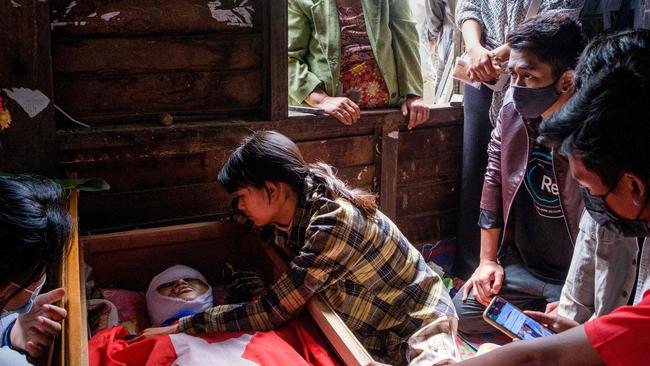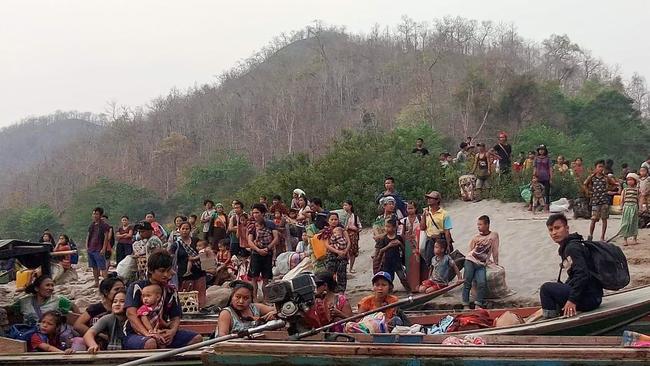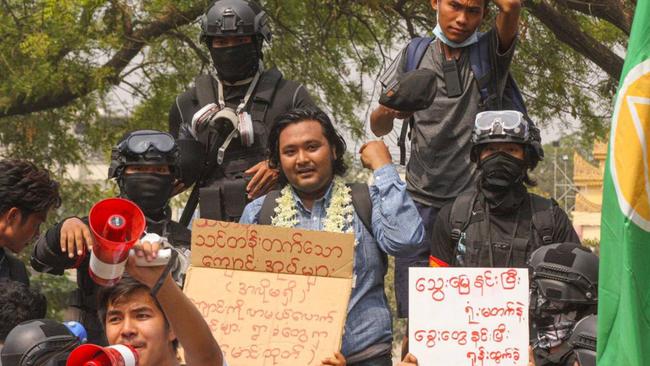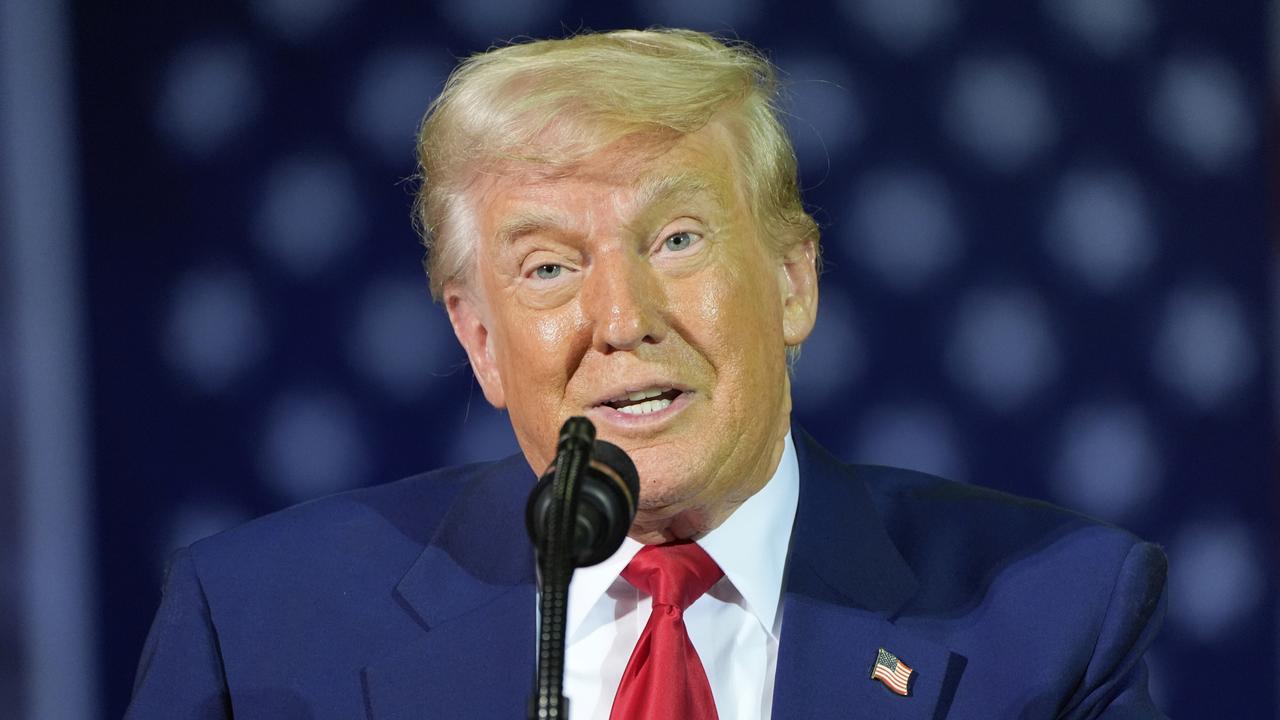Myanmar civilian death toll passes 500
The threat to regional security also rises with thousands of refugees flocking to the Thai border in recent days.

Myanmar is on the brink of becoming a failed state, with its security forces in an increasingly intractable war with its own people, unable to complete the February 1 coup that toppled the elected government of Aung San Suu Kyi despite killing more than 500 civilians in a violent crackdown on mass protests.
As the crisis escalates in Myanmar, the threat to regional security rises, with thousands of refugees flocking to the Thai border in recent days following military airstrikes against the Karen National Union, one of the country’s largest armed ethnic militia.
Rights groups say at least 2000 refugees who tried to cross into Thailand at the weekend were turned back, a claim the Thai government has denied, and more still were given until noon on Tuesday to leave.
Surging attacks by armed rebel groups on military posts in Myanmar’s restive border areas, and a new threat by three ethnic militias to provide armed support to the anti-coup movement, is stoking fears that the country could tip into all-out civil war.
“Right now, I think the country is largely ungovernable and the military has been unable to complete the coup in the way it wanted, allowing for the resumption of stability. Essentially, it’s teetering on the brink of becoming a failed state,” Lowy Institute’s power and diplomacy program director Herve Lemahieu said.
“The power of the gun will only get you so far. It can coerce and intimidate but it doesn’t make Myanmar more governable in the short term. The longer this crisis continues, the more of a geopolitical dimension it acquires.”

Major powers have stepped up condemnation of the junta since security forces rampaged across the country at the weekend, killing at least 169 people in 50 towns and cities, according to the latest tally by independent newspaper Myanmar Now.
Fourteen of those victims were children, among them 11-year-old Aye Myat Thu, who was shot by soldiers as she played outside in Mon state. She was buried on Sunday with her colouring books and her favourite toys.
At least 510 people have been killed by security forces since the military coup, despite urgent calls for a de-escalation and the courageous persistence of the many thousands who continue their daily protests despite the carnage.
“Stop the killings, stop the repression of the demonstrations, release the political prisoners, and return power to those that have legitimate right to exercise it,” UN Secretary General Antonio Guterres said on Monday.
Some 2574 people have been detained, including Suu Kyi herself, whom the junta has charged with at least five criminal offences including illegally importing walkie talkies, most of her former cabinet and MPs, and Australian economics professor Sean Turnell.
Another two Australians, business consultants Christa Avery and Matthew O’Kane, were prevented from leaving the country this month and placed in home detention.

On Sunday, 12 national defence chiefs from Europe, North America and the Asia Pacific, including Australia’s Angus Campbell, jointly condemned the military’s use of lethal force against unarmed people.
Even China reiterated concerns over the violence, with foreign ministry spokesman Zhao Lijian telling reporters on Monday: “Violence and bloodshed are not in the interest of any parties, and it is the Myanmar people who suffer.”
The US, Britain, the EU, Australia and New Zealand have imposed varying levels of sanctions against the Myanmar generals, although Canberra is still considering sanctions against coup leader Min Aung Hlaing and military-linked conglomerates.
On Monday, Washington announced it was also suspending its trade pact with Myanmar, effectively removing the impoverished country from the Generalised System of Preferences under which the US grants duty-free access to some imports from developing nations.
Indonesia is pushing a lethargic ASEAN to hold a leader’s summit over the crisis, having earlier this month corralled the bloc’s foreign ministers into an emergency meeting.
It has announced closer co-operation with Japan to help resolve the issue, fearing the potential for Myanmar to spiral into a “Southeast Asian Syria or Afghanistan” with regional players as proxies.
Russia’s decision to send its deputy defence minister to Naypyidaw at the weekend to attend the junta’s Armed Forces day and offer its support to senior general Min Aung Hlaing has only heightened those fears. Moscow, which outstripped China as the Myanmar military’s largest weapons supplier until 2016, clearly sees opportunity in the emergency.
“Russia has less to lose by getting involved,” says Dr Lemahieu. “They don’t have to contend with instability on their borders in the way that India and China will have to. They don’t have mass scale investments at stake.”




To join the conversation, please log in. Don't have an account? Register
Join the conversation, you are commenting as Logout